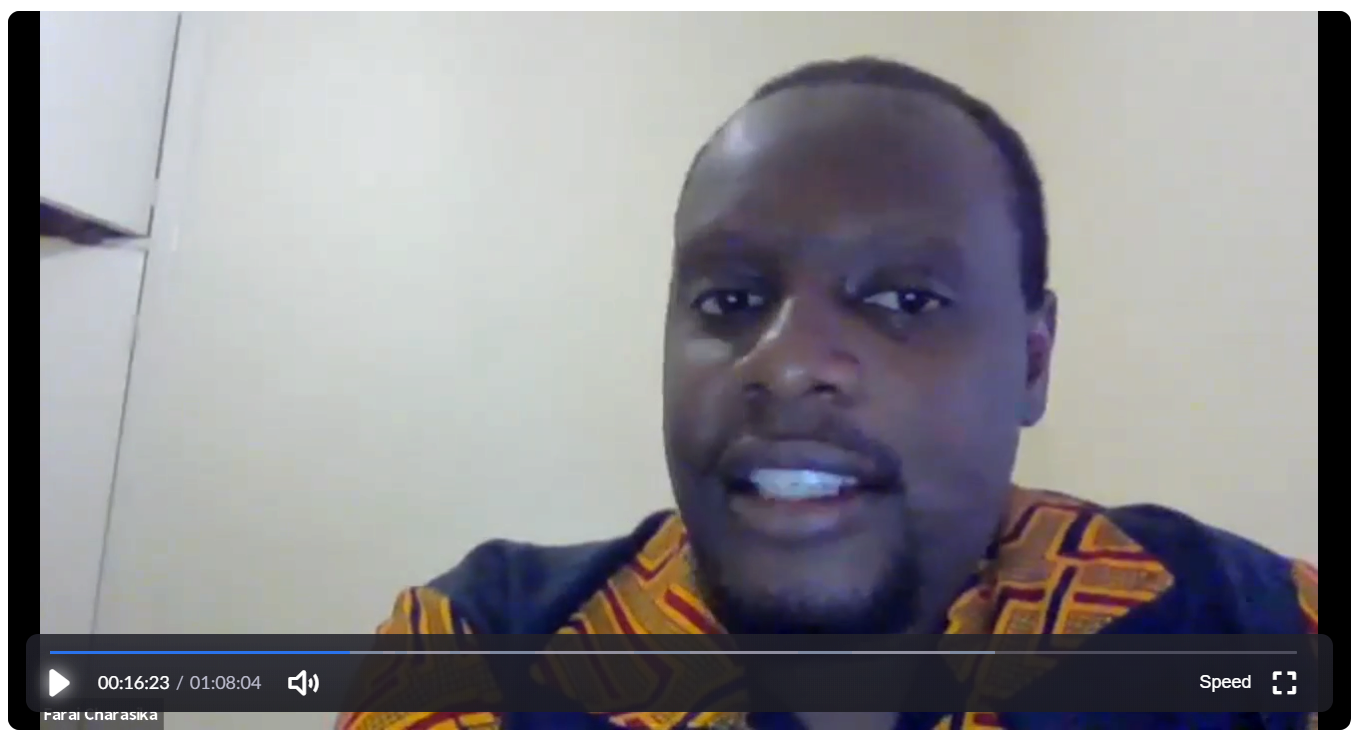Dr. Lynsey Farrell, Senior Lecturer in International Studies, Lauder Institute Africa program, shares a recap of a virtual panel discussion titled “COVID-19 in Africa: Avoiding a Public Health Crisis,” a discussion about comparative approaches and responses of governments, civil societies and the private sector in Africa to contain the spread of Covid-19 on the continent.



The Lauder Institute is grateful to Wharton alumna and co-Founder of Insider and AXN Audrey Hruby, University of Oregon professor Melissa Graboyes, and Zimbabwe public health expert Farai Charasika for joining us to share insights and reflections on the impact of COVID-19 in Africa on Friday, April 17th. We invited Lauder students and alumni – nearly 100 signed on for a thought-provoking and rich discussion.
The global pandemic has reached 52 of the 54 countries in Africa (only Lesotho and Comoros are not reporting cases) and the cases being reported by the African Centre for Disease Control compound daily. Many countries on the continent have recently experienced health epidemics like Ebola or cholera and were able to react quickly by closing borders and instituting a variety of lockdown measures. The economic fallout is likely to be devastating. Last week, McKinsey released figures that 150 million informal and formal jobs are expected to be affected and the World Bank reported that economic growth across SSA is likely to contract from 2.4 percent in 2019 to between -2.1 and -5.1 in 2020.
At this early stage, we wanted to find out from our guests what is going well and what are some unique challenges faced by African nations in light of these realities?
We learned there are multiple reasons to be optimistic. One, African nations have taken the pandemic seriously and responded quickly. The delay of cases of COVID-19 have given states in Africa opportunities to learn more about the virus and to observe how countries in Asia, Europe and North America are managing cases. There has been time to prepare and focus on public health campaigns promoting hand-washing and social distancing. African states were able prepare by closing borders, halting flights and developing isolation centers for positive cases. Testing is still not widespread, and there have been controversial approaches to the enforcement of quarantines and curfews, but the head start was widely seen as a positive for the continent.
Two, the pandemic is already proving to be a catalyst for the creation of health infrastructure. States in Africa are making evidence-based and data-driven decisions as part of their response to the effort. Dr. Charasika marveled at the volume of scientific modeling being used to track the disease in Southern Africa. And while it is no secret African states may not have health infrastructure like medical staff or equipment needed should there be a sudden surge of cases, all the panelists shared an optimism that preparations for COVID-19 may result in new hospitals and private-public sector collaborations with lasting effects, like the partnership between GT Bank and the Lagos State government which developed a 101-bed isolation unit in the Lagos National Stadium in 5 days.
Three, the crisis is accelerating African-led solutions to African problems. International contributions to the crisis in Africa have included debt relief from the World Bank and donations from billionaires like Jack Ma and Bill Gates to African countries, but the crisis is providing an opportunity for pan-African institutions in Africa to take leadership in developing solutions unique to the continent. Some examples of local responses include the use of widespread mobile money to rapidly share resources and deliver cash transfers, the development and free distribution of mobile applications for tele-medicine and e-health documentation and the repurposing of idle public transportation vehicles to distribute food.
The complicated situation of the COVID-19 spread in Africa is not without concerns. Overwhelmingly, panelists agreed that lockdowns may not be the answer in large crowded urban informal settlements where residents do not have the resources to self-isolate or quarantine together. Lack of improved sanitation or running water within homes does not make it possible for people to enact the self-isolation measures when they or others in their households are sick. Widespread use of masks, the provision of needs for sanitation and handwashing, and the development of isolation units were offered as solutions.
It is also certain that there will be an inevitable acceleration of poverty. The majority of Africans make their living in economies that are often deemed informal. Some states are experimenting with cash bailouts and social safety nets, but the global recession and contraction of growth is likely to hit hard. Aubrey Hruby felt that the economic crisis may provide an opportunity to rethink some of the definitions of livelihoods to see how essential the informal sector has been in providing services and goods to the masses.
Friday’s conversation contributed to what we hope will be a series on African business and economics, politics and society at the Lauder Institute. We want to explore a rising Africa and examine how growth and opportunity in its frontier economies are challenging norms and barriers to economic and social change. We will be focusing on the uniqueness of Africa’s growth trajectory and how it can help us more deeply understand the continent’s economic, institutional and cultural shifts.


